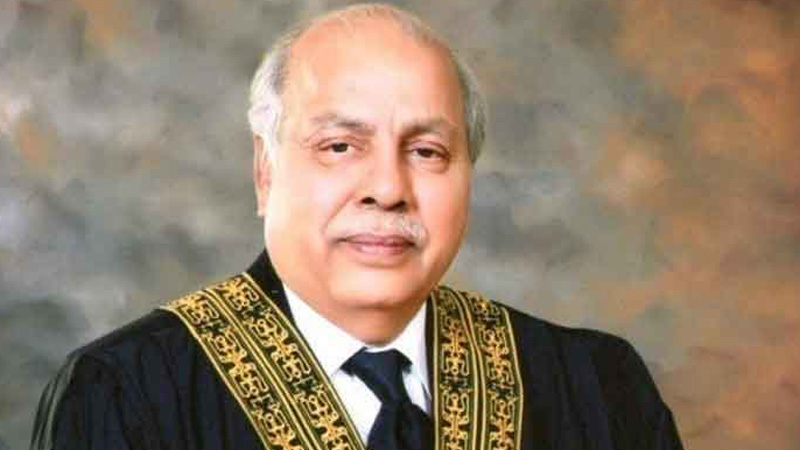 Chief Justice Gulzar Ahmad said it is unfortunate that PPP and PML-N are deviating from the Charter of Democracy (CoD), in which they agreed to end corrupt practices in the Senate election.
Chief Justice Gulzar Ahmad said it is unfortunate that PPP and PML-N are deviating from the Charter of Democracy (CoD), in which they agreed to end corrupt practices in the Senate election.
“I can’t say whether horse trading will end or not,” he said and added that Article 59 did not mention secret voting. The court said the constitution is a political document so interpreting the constitution is politics.
Advocate General Sindh said that the cabinet placed a burden on the court. The court should keep itself above politics.
A five-member larger bench headed by Chief Justice Gulzar Ahmed and comprising Justice Mushir Alam, Justice Umar Ata Bandial, Justice Ijaz ul Ahsan and Justice Yahya Afridi heard the presidential reference regarding holding of Senate elections through open ballot.
At the outset of the hearing Advocate General Punjab argued that the voting process should be confidential. If a member of the Assembly violates party policy, action may be taken against him. If someone wants to vote according to his or her conscience then it should be done openly.
Punishment can only be for buying and selling votes. He further said that for transparency it is not necessary to keep everything secret and the public mandate was stolen in the past too.
Advocate General Balochistan in his argument took the stand that corruption is also prohibited in the Holy Quran. But it takes place in electoral processes all over the world and all countries should take steps to control it.
The chief justice remarked that Article 63A did not apply to Senate elections. Article 59 of the Constitution refers to the Senate. Justice Ejaz-ul-Haq said that Articles 59 and 226 must be read together.
Advocate General Sindh argued that the question raised in the reference was inappropriate since no one had any evidence of horse trading. The constitution does not allow voter identification. Article 226 obliges election secrecy.
The chief justice inquired whether the Senate election was ever challenged. The Constitution itself is a political document. The court is doing political work while interpreting the Constitution. Can the vote be reviewed after the election result? Can it be investigated whether it was cast under the law or not? Advocate General Sindh said that once the ballot paper is in the hands of the voter, no one can see it.
Advocate General Sindh, while endorsing the position of the Election Commission, said that the wish of the federal government could not be fulfilled without amending Article 226 of the Constitution. The Advocate General of Balochistan and the Advocate General of Islamabad also adopted the arguments of the Attorney General. The hearing is adjourned until 10.30 am today (Friday).